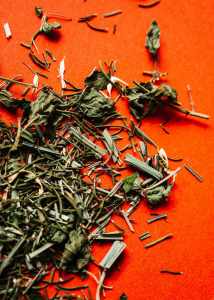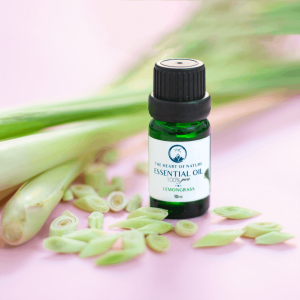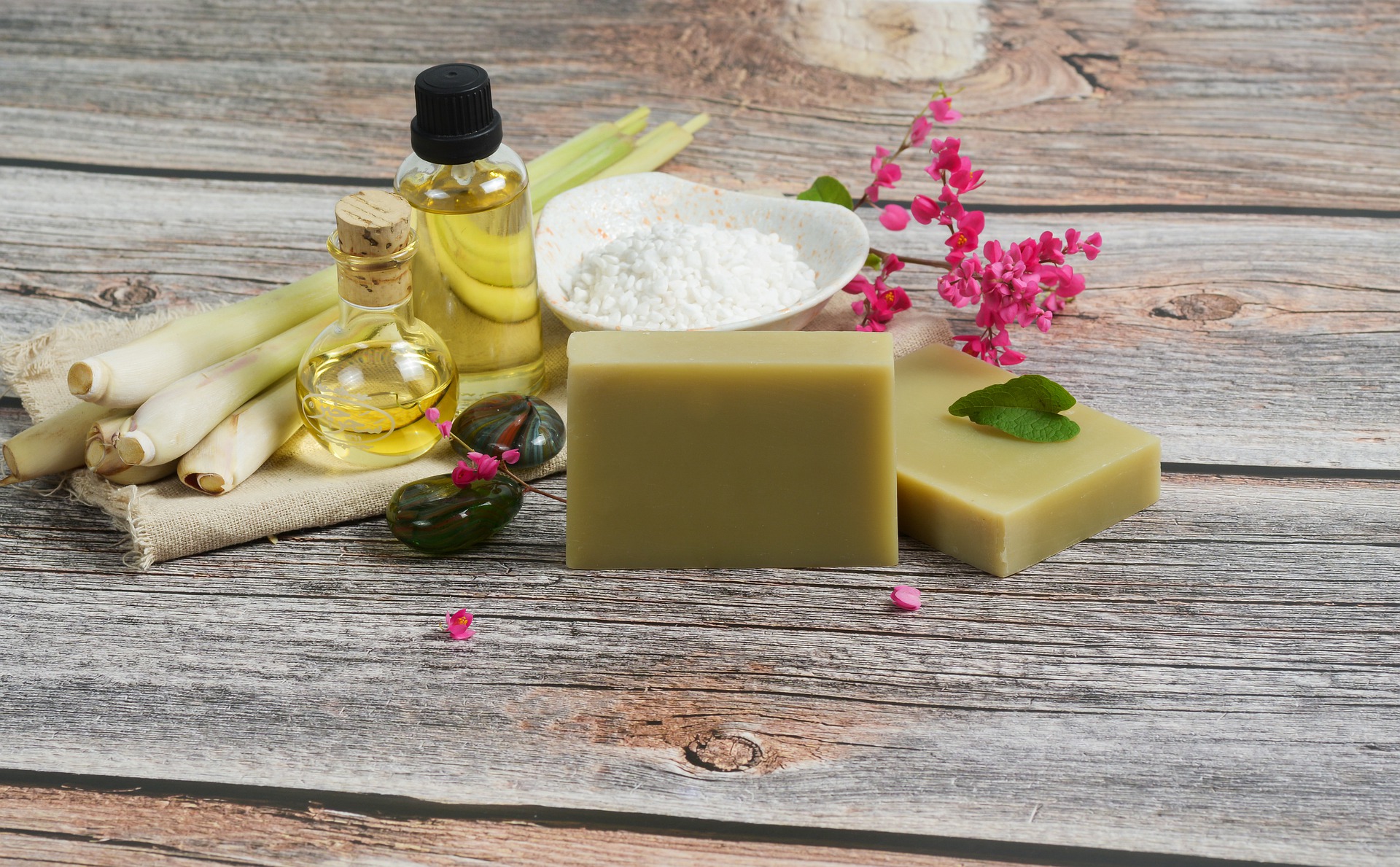Mosquitos can be quite a nuisance, and we are always looking for ways to fight them. Here, we will discuss how does lemongrass repel mosquitoes and how you can use this quick remedy.
Have you ever been on a camping trip with your friends? Do you remember experiencing the evenings amidst starlit skies and fireflies? How did that feel? Magical, isn’t it?
But, how was your experience when you went to sleep in the same environment? Did it feel amazing as well? Did you get to hear the songs of the mosquitoes and other nocturnal insects? Well, you did right.
Just like human beings, insects, especially mosquitoes, are an essential part of the ecosystem. Some of these insects are harmless to human beings, while others are not.
Table of Contents
How are mosquitoes dangerous to humans?
Mosquitoes, in general, feed on human blood and inject them with several diseases. These include malaria, dengue, etc. These diseases have also been known to cause deaths in human beings. This is why it is necessary to keep mosquitoes at bay.
But it isn’t easy to get rid of them, especially when you are in a mosquito-infested region. Therefore, it is important to use products or ingredients that can repel them and keep you safe.
You must have heard about lemongrass, right? It is a herb that has many health benefits. It is usually found in Sri Lanka and other south Indian states. However, due to its multifarious uses, it is grown in many places all over the world.
It is also an actively used ingredient in most Asian cuisines. Its long pointed leaves and other features are often compared to seagrasses, but it is more beneficial than them.
Benefits of lemongrass
Despite its simple visual appearance, the list of benefits of this wild herb is endless. Moreover, these benefits are very effective in terms of both health and other benefits. Some of these include the following.
Improves oral health
Lemongrass plays a very important role in restoring dental health. In countries like India, where lemongrass is found in abundance, natives are often noticed chewing the stalk of this herb. It aids in cleaning the mouth and keeping the gums strong.
Prevents several infections
According to the Memorial Sloan Kettering Cancer Center research, lemongrass contains many compounds that can prevent infections. This is why it is a vital part of several medicines that cure infections.
A pain-relieving agent
Lemongrass tea has been known to improve pain sensations. If you love drinking tea, add this type to your routine to get a different taste.

Boosting red blood cells
According to renowned research, people who regularly drank lemongrass tea for a month showed an increase in hemoglobin concentration and red blood cell count in the body compared to those who did not. The study concluded that the antioxidants of the herb played a key role in the same.
Can significantly reduce cholesterol
Research suggests that lemongrass is effective against cholesterol in animals. The study has also shown that an increase in dosage led to a further drop in cholesterol levels.
Can reduce bloating
By being a long-term drinker of lemongrass tea, you can significantly improve bloating. This is because lemongrass has diuretic effects. These effects cause the kidneys to release more urine than normal and therefore keep bloating issues at bay.
Can reduce anxiety
It is often said that the consumption of warm beverages is beneficial for fighting anxiety. However, that is not all in the case of lemongrass. Your lemongrass tea is not only warm but also full of large amounts of antioxidants. These antioxidants fight stress and keep your mind relieved. To experience the most of its magic, try having a cup of lemongrass tea each night before bed.
Apart from its health benefits, lemongrass has a unique quality. The herb is an effective insect repellent. Yes, you heard it right! Lemongrass is immensely helpful in warding off insects and mosquitoes.
How to make lemongrass mosquito repellent?
You must be tired of mosquitoes buzzing around your house. Well, we understand your pain. Here is a simple lemongrass room spray that has multiple benefits. This spray will keep away bad odor from your house and give it a tangy, citrus fruit scent. Moreover, this spray will keep mosquitoes away from your premises.
To make lemongrass mosquito repellent for your home, you need to prepare a simple concoction. For this, you will need:
- A large pot
- Lemongrass plants
- Three cups of water
- Spray bottle
Preparation:
- Take a large pot and place it on a stove
- Add water to the pot and let it heat
- Chop your lemongrass grass into pieces that are not longer than your index finger
- Observe the water
- Once there are bubbles in the water, pour in the lemongrass
- Make sure that your lemongrass is devoid of roots
- Let the mixture boil for at least ten minutes.
- Next, switch off the heat and place a lid on the pot
- Now store the pot in a corner overnight
- Drain the concoction and pour it out in the spray bottle
- Spray it all around your house two times a day and enjoy the permanent departure of mosquitoes.
Citronella vs lemongrass for mosquito
Lemongrass, also known as Cymbopogon Citratus, a tall grass-like herb that can be easily grown in Southern Asia, Africa, and Australia. India produces the largest amount of Lemongrass in the world. The stalk of this herb is essentially used as a culinary element in most of these regions. Moreover, it is also used in deodorants, cosmetic products, and soaps in fresh or dried form.
Citronella, also known as Cymbopogon Nardus, is a widely available fragrant herb grown in Burma, Sri Lanka, Indonesia, and India. This herb can be easily grown in gardens and nurseries. The herb has green leaves with red or magenta stems. Due to its insect repellent properties, this herb is generally used in candles, insect repellent products, and soaps. This herb is more commonly used as a mosquito repellent. The plant produces a distinct scent called the ‘citronella scent’ that wards off mosquitoes.
Apart from similarities in terms of visual appearances and usability, the fragrance of these two herbs is also similar. However, a large number of people have voted that lemongrass has a better smell than Citronella.
Does eating lemongrass repel mosquitoes?
Even though it might be a little hard to believe, it does! Lemongrass works wonders against mosquitoes. No matter if you eat it or apply it. The natural odor of this plant is quite strong.
Such an odor can easily help you by veiling your natural body odors. This, in turn, will make you invisible to mosquitoes and prevent you from mosquito bites. This wonderful plan is a part of various dishes, especially different curries and soups of Thai cuisine.

Does lemongrass repel flies?
Lemongrass is a tall grass-like herb with effective benefits for all kinds of insects, including flies and mosquitoes. The distinct fragrance of the herb can confuse the olfactory senses of any insect, both flies, and mosquitoes alike.
The confusion of the olfactory senses of these insects eradicates your body’s natural fragrances. This can make the organism feel like there are no human beings around.
Lemongrass mosquito spray
Lemongrass does repel mosquitoes, and it is time to know how. This unique component can be easily used in many ways, for example, by eating or by applying. However, you can easily prepare a lemongrass mosquito spray at home.
You will need the following ingredients:
- 20 drops of tea tree essential oil
- 20 drops of lavender essential oil
- 25 drops of lemongrass essential oil
- 20 drops of citronella essential oil
- Five drops of geranium essential oil
- One teaspoon of neem oil
- One tablespoon of vodka or denatured alcohol
- Four tablespoons of distilled water
- An empty spray bottle (90 ml)
- A small funnel
Preparation:
- Take the empty spray bottle and clean it. Make sure the bottle is dry from the inside before you start preparing this concoction.
- Set up a funnel on the bottle and pour the neem oil. Also, add vodka or denatured alcohol and distilled water.
- Remove the funnel and gently mix the ingredients by moving the bottle.
- After doing this for a while, add the funnel back to the bottle. Now pour the tea tree and citronella essential oils. Remove the funnel and repeat the motion.
- Add the funnel back and pour lavender, geranium, and lemongrass essential oils into the concoction. Now screw on the lid of the bottle and shake the bottle for about twenty to thirty seconds.
- Before applying directly to your skin, make sure to run a patch test. To do so, you need to apply the concoction to a small patch on your body, preferably on your hand. Let the concoction react with your skin for a few hours before rinsing it off with cold water. If the patch does not react within a day or two, you can safely use this concoction. Also, make sure always to shake the bottle before use.
- Spray yourself with the concoction thoroughly before visiting any mosquito-infested area. One spritz of this mixture can last up to four hours. Make sure to carry it along if you will be outside for long hours.
- Store the mixture at room temperature. Do not refrigerate. The average shelf life of this mixture is about three years. However, it is likely to lose its effectiveness over time.
Lemongrass diffuser to repel mosquitoes
Diffusers are devices that are widely available in homes these days. These devices release aroma all around the house gradually. It has common usage in aromatherapy and also found its way into the daily lives of people. People place these devices in few specific corners of a house where they constantly release fragrances.
Since diffusers spread fragrances around the house, they have different fragrant essential oils—lavender essential oil, citrus essential oil, chamomile essential oil, etc. However, you can also use a diffuser to spray lemongrass essential oil all around your house. It will also be an effective way to get rid of mosquitoes.

How to use lemongrass as mosquito repellent?
Lemongrass has a distinct citrus fruit-like smell. The herb’s fragrance makes it one of the most sought-after elements for deodorants, soaps, and other cosmetic products. However, the smell is also effective against insects and mosquitoes. This herb has a gentle effect on the skin, which is why lemongrass does repel mosquitoes.
Now that you know lemongrass can repel mosquitoes, you may want to plant some in your garden to get rid of the mosquitoes. Well, that can help you but not completely.
Although lemongrass is a great mosquito repellent, the living plant is not so much. By planting lemongrass in your garden, you may reduce the number of mosquitoes that infest your property, but you will not be able to get rid of them. This is mainly because the lemongrass essential oil derives from the stem of the plant. These oils do not release into the environment when the plant is alive.
You may have also heard that burning lemongrass can help in repelling mosquitoes. However, this is also untrue. By burning the plant, you will only be exposing your olfactory senses to irritation and discomfort. The mosquitoes, on the other hand, will not die.
Use the grass directly or lemongrass essential oil in a concoction to use lemongrass as a mosquito or insect repellent. You may also use other essential oils in the concoction, for example, lavender essential oil, geranium essential oil, etc.
Final thoughts
Does lemongrass repel mosquitoes that will no longer be a part of your queries? That is because it does and is even better than Citronella. We hope this piece has helped you understand how you can use this distinct herb. The benefits of this herb go beyond the ability to rid yourself of the immensely troublesome mosquitoes. Therefore, alongside keeping mosquitoes a bay, try to have a cup of lemongrass tea each day, and we can promise that lemongrass will not disappoint you!

